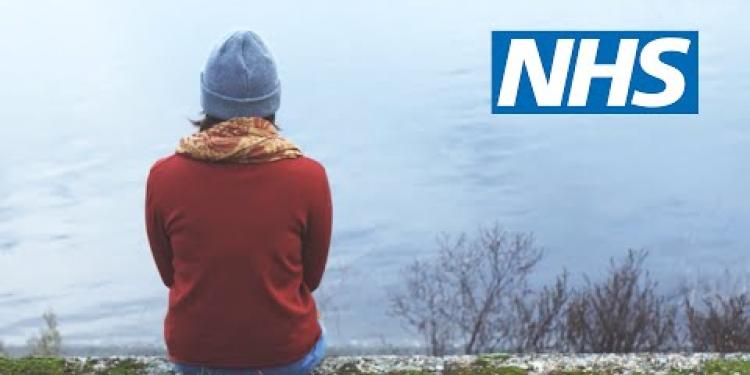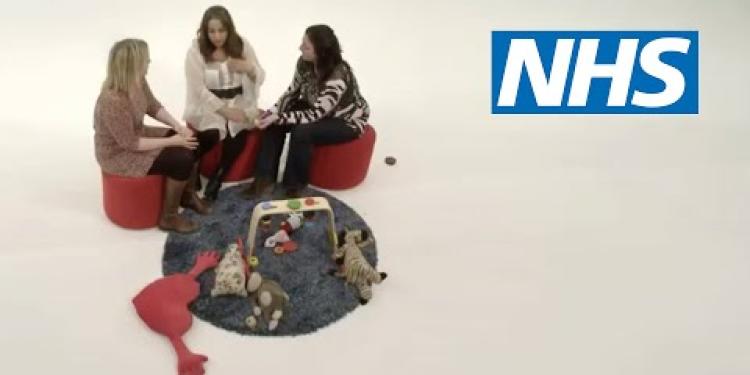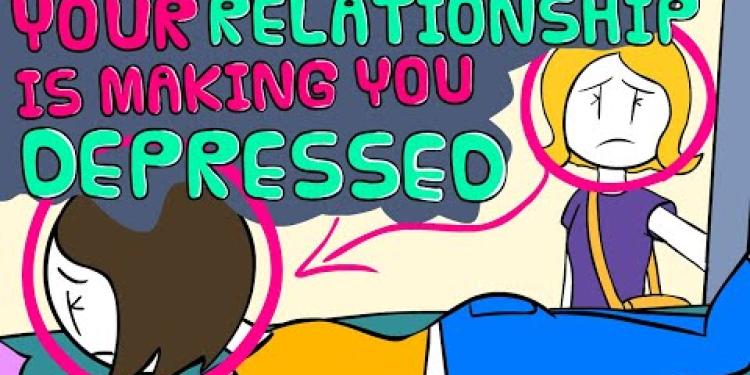Find A Professional
More Videos On This Subjectdiagnosis
Anxiety and Depression
Understanding Anxiety and Depression
Anxiety and depression are common mental health conditions that can have a significant impact on an individual's daily life. Understanding these conditions is crucial for seeking appropriate help and support. For residents of the United Kingdom, the South London and Maudsley NHS Foundation Trust (www.slam.nhs.uk) offers extensive resources and services aimed at mental health care.
Symptoms of Anxiety
Anxiety is characterised by feelings of worry, nervousness, or fear that are strong enough to interfere with one's daily activities. Symptoms can include excessive fear, restlessness, fatigue, difficulty concentrating, irritability, muscle tension, and sleep disturbances. In severe cases, anxiety can lead to panic attacks.
Symptoms of Depression
Depression is a mood disorder that causes a persistent feeling of sadness and loss of interest. Symptoms include feeling sad or empty, loss of interest in activities once enjoyed, changes in appetite, weight loss or gain, trouble sleeping or sleeping too much, loss of energy, feeling worthless or guilty, difficulty thinking or concentrating, and thoughts of self-harm or suicide.
Seeking Help
If you or someone you know is experiencing symptoms of anxiety or depression, it is important to seek professional help. In the UK, you can visit your General Practitioner (GP) for guidance and referrals. South London and Maudsley NHS Foundation Trust also provides various services, including therapy, counselling, and support groups aimed at helping individuals manage their mental health conditions effectively.
Resources and Support
South London and Maudsley NHS Foundation Trust provides a wealth of resources for those affected by anxiety and depression. They offer online resources, self-help tools, and information on how to access medical support. For more information, visit their official website at www.slam.nhs.uk.
Frequently Asked Questions
What is anxiety?
Anxiety is a feeling of unease, such as worry or fear, that can be mild or severe. It is a normal response to stress or danger, but it can become a problem if it's excessive or prolonged.
What are the symptoms of anxiety?
Common symptoms of anxiety include restlessness, a sense of dread, feeling on edge, difficulty concentrating, and physical symptoms like dizziness, palpitations, and sweating.
What is depression?
Depression is a low mood that lasts for a long time and affects your everyday life. It can range from feeling persistently sad to feeling hopeless, worthless, and at worst, suicidal.
What are the symptoms of depression?
Symptoms of depression include continuous low mood, loss of interest in activities, changes in appetite or weight, sleep disturbances, fatigue, and feelings of guilt or worthlessness.
How common are anxiety and depression?
Anxiety and depression are common mental health issues. In the UK, it's estimated that 1 in 6 people will experience a common mental health issue each week.
What causes anxiety and depression?
There is no single cause, but factors can include genetics, brain chemistry, life events, and personal circumstances. Often, a combination of factors is involved.
Can anxiety and depression be treated?
Yes, both conditions can be treated. Treatment options include talking therapies like CBT, medications such as antidepressants, lifestyle changes, and self-help strategies.
What is Cognitive Behavioural Therapy (CBT)?
Cognitive Behavioural Therapy (CBT) is a talking therapy that helps you manage problems by changing the way you think and behave. It's commonly used to treat anxiety and depression.
Are medications effective for anxiety and depression?
Medications, such as antidepressants, can be effective for many people. They help by balancing chemicals in the brain that affect mood and emotions. Always consult a GP or psychiatrist before starting any medication.
How can I access help for anxiety and depression?
You can talk to your GP, who can refer you to specialist services such as the South London and Maudsley (SLaM) NHS Foundation Trust. There are also helplines and support groups available.
Can lifestyle changes help with anxiety and depression?
Yes, lifestyle changes such as regular exercise, a healthy diet, good sleep hygiene, and reducing alcohol and caffeine intake can help improve symptoms.
What self-help strategies can I use for anxiety and depression?
Self-help strategies include mindfulness, relaxation techniques, setting realistic goals, and connecting with others. Resources like books, apps, and online forums can also be helpful.
Is it normal to have anxiety during stressful events?
Yes, it's normal to feel anxious during stressful events. Anxiety is a natural response to real or perceived threats, but it should lessen once the situation improves.
Can children and teenagers suffer from anxiety and depression?
Yes, children and teenagers can experience anxiety and depression. It's important to recognize the signs early and seek appropriate help from healthcare professionals.
What should I do if I think someone I know is struggling with anxiety or depression?
Encourage them to speak to a GP or mental health professional, offer your support, listen without judgment, and provide information about available resources.
Useful Links
Useful links from: Clinical depression: Lawrence's story | NHS
- NHS - Clinical depression Overview Comprehensive resource provided by the NHS outlining symptoms, causes, diagnosis, and treatments for clinical depression.
- NHS - Depression: Lawrence’s story First-hand account of Lawrence’s experience with clinical depression and his journey to recovery, providing insight and hope for others.
- Mind - Information on Depression Detailed information from the UK charity Mind, covering what depression is and how you can get support, including treatment and recovery tips.
- Rethink Mental Illness - Depression Support and advice from the mental health charity Rethink Mental Illness on understanding, managing, and treating depression.
Useful links from: Mental Health: Laura's Story | NHS
- NHS - Mental health The NHS provides comprehensive information and support for mental health related issues. This includes guides, advice, and resources to manage mental health issues.
- Mind Mind is a UK-based charity offering information and support for those experiencing mental health problems. They provide resources for understanding mental health, support services, and advocacy.
- Rethink Mental Illness Rethink Mental Illness is a UK charity that provides expert, accredited advice and information to everyone affected by mental health problems. They campaign for policy change and offer a range of support services.
- Samaritans Samaritans is a UK charity dedicated to reducing feelings of isolation and disconnection that can lead to suicidal thoughts. They offer a 24/7 helpline and support services for those in distress.
Useful links from: Short Films About Mental Health - Trauma PTSD
- NHS - Post-traumatic stress disorder (PTSD) This NHS page provides detailed information about PTSD, its symptoms, treatment options, and links to external supportive resources.
- Mind - Post-traumatic stress disorder (PTSD) Mind's page on PTSD provides insights into the condition, personal stories, treatments, and support available from the charity.
- Rethink Mental Illness - Trauma Rethink Mental Illness provides this resource to help understand trauma and PTSD, including advice on coping, treatment, and finding support.
- SANE - Mental Health Films SANE offers a series of mental health films, including those addressing trauma and PTSD, to raise awareness and provide support.
Useful links from: How do I know if I have postnatal depression? | NHS
- Postnatal depression NHS page providing comprehensive information on symptoms, diagnosis, and treatment of postnatal depression.
- Postnatal Depression - Mind Information from Mind, a leading mental health charity, about postnatal depression, including symptoms and how to get support.
- Postnatal depression and perinatal mental health - Tommy's Tommy's charity offers detailed information on postnatal depression and other perinatal mental health issues, including symptoms and treatment options.
- Postnatal Depression - PANDAS Foundation The PANDAS Foundation provides support and advice specifically focussed on postnatal depression, including how to recognize symptoms and where to find help.
Useful links from: Coping with Stress and Anxiety
- NHS - Stress NHS page providing comprehensive information on understanding, managing, and reducing stress, along with tips for maintaining mental well-being.
- NHS - Anxiety NHS resource dedicated to understanding anxiety, including symptoms, treatment options, and self-help strategies.
- Mind - Stress Mind, a UK-based mental health charity, offers detailed information on stress, its causes, symptoms, and ways to manage it effectively.
- Anxiety UK Anxiety UK provides support and information for those affected by anxiety disorders, offering resources, therapy services, and self-help materials.
Useful links from: Advancements in Mental Health Resources for Families
- NHS Mental health services An overview of NHS mental health services available for individuals and families. It provides information on where to get help, how to access services, and the types of support available.
- YoungMinds A UK-based charity focused on the mental health and wellbeing of children and young people. Their website offers resources, advice, and support for families and professionals working with young people.
- Mind A UK charity providing advice and support to empower anyone experiencing a mental health problem. They campaign to improve services, raise awareness, and promote understanding, with resources for families.
- Rethink Mental Illness Rethink Mental Illness offers support and information to anyone affected by mental illness, including families and carers. Their website includes advice on a range of topics, from diagnosis to treatment and support.
Useful links from: Strategies for Managing Seasonal Affective Disorder
- NHS - Seasonal Affective Disorder (SAD) The NHS provides detailed information about Seasonal Affective Disorder, including symptoms, causes, diagnosis, and treatment options. It also offers practical advice on managing the condition.
- Mind - Seasonal Affective Disorder (SAD) Mind is a leading UK mental health charity offering a comprehensive guide on SAD. The page includes information on symptoms, causes, self-care tips, treatments, and how to seek professional help.
- SAD.org.uk - UK Sufferers of SAD This site is dedicated to UK sufferers of SAD. It offers a wealth of resources, including information on the disorder, treatment options, personal stories, and support networks.
- Seasonal Affective Disorder Association (SADA) SADA is a UK-based charity focused exclusively on SAD. The website provides information on understanding the disorder, potential treatments, and support options available to those affected.
Useful links from: Support Services for Mental Health Amid Economic Uncertainty
- NHS Mental Health Services Provides information on accessing NHS mental health services including what to expect and how to get help during economic challenges.
- Mind Mind offers resources and guidance on managing mental health and well-being during financial difficulties.
- Samaritans Samaritans provide confidential support and practical advice for those experiencing mental health issues due to financial stress.
- Rethink Mental Illness Rethink Mental Illness offers advice and support for individuals dealing with mental health problems and financial worries.
Useful links from: 7 Signs Your Relationship is Making You Depressed
- NHS - Stress, Anxiety and Depression This page on the NHS website offers information on the symptoms, causes, and treatments for stress, anxiety, and depression, which can be relevant if you're feeling low due to your relationship.
- NHS - How to Cope with Relationship Problems An NHS resource providing advice on how to handle relationship issues that may be impacting your mental health.
- Mind - Relationships and Mental Health Mind is a UK-based charity that provides an extensive guide on the interplay between relationships and mental health.
- Relate - Relationship Help Relate offers counselling and support to assist in navigating relationship issues, which could be particularly useful if your relationship is causing you distress.
More Videos On This Subjectdiagnosis
Have you found an error, or do you have a link or some information you would like to share? Please let us know using the form below.
- Ergsy carfully checks the information in the videos we provide here.
- Videos shown by Youtube after a video has completed, have NOT been reviewed by ERGSY.
- To view, click the arrow in centre of video.
- Most of the videos you find here will have subtitles and/or closed captions available.
- You may need to turn these on, and choose your preferred language.
- Go to the video you'd like to watch.
- If closed captions (CC) are available, settings will be visible on the bottom right of the video player.
- To turn on Captions, click settings .
- To turn off Captions, click settings again.





